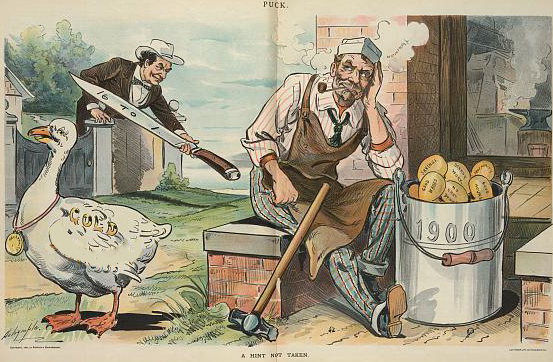There’s no denying that we love our country roads in WV. There’s also no denying that many are in terrible condition.
What we budget for our roads: it’s not enough. Adjusting for inflation, we had about 43 million less to spend on our roads in 2013 than in 2008. The issue is that our representatives’ only proposals to fix the infrastructure funding deficit seem to center around raising taxes on regular people… when we’re already paying far more than our fair share.
Understand, freight trucks do about 99% of non-weather-related damage to roads. And they only pay for an average of 35% of maintenance costs. In fact, “One fully loaded 18-wheeler does the same damage to a road as 9600 cars.” So nearly all of the road damage is being caused by corporations shipping goods over roads that we are paying for.
This is one of the socialized costs associated with West Virginia’s Resource Curse, and contributes to the Extraction Debt that industries like coal, oil, gas, and timber owe us. This is why WV is not wealthy from all our many resources; it’s why regular people aren’t benefiting from them: because we are essentially subsidizing Resource Barons.
This way of balancing the budget on the backs of regular people encourages industries to come here, take our resources, and leave us worse off than before.
It should be the other way around. Industries that come here should leave us better off than we were before they arrived. We can’t run a budget like this, or we end up leaving WV poor and ranked last or nearly so on every list of “best states for.”
Let’s use some common sense. We want businesses to come to WV so they can improve life here for us. It should be an arrangement that benefits us and the businesses, both.

If you call a plumber to fix your leaky pipes, the idea is that he fixes your leaks, and in exchange you pay him. It’s mutually beneficial.
But if your plumber arrives, does nothing for your leaks… but raids your fridge, clogs your toilet, knocks a hole in your roof—and tosses your three window A/Cs in the bed of his truck on the way out—then that’s not a good deal for you. Need I convince you that you don’t employ that plumber anymore? You find one who can do the job. We have to use the same common sense when it comes to the money our state spends.
Penny wise and pound foolish
WV politicians can’t continue to be penny-wise and pound-foolish. We have to use cost-benefit analyses and stop focusing solely on short-term outcomes or what is convenient to future careers of the political class.
In other words, we have to look at the math. A recent Pew Research report on states’ use of cost-benefit studies found that one of the main challenges is that “examining the long-term costs and benefits of programs can conflict with the political process… [and] often focuses on short-term outcomes. Policymakers may overlook proven programs that do not provide an immediate return on investment.”
We should not “treat effective and ineffective programs alike. Policy and spending choices should be based on evidence about what works and what does not.” That will make sure we’re working toward prosperity, not against it. Yet this report on states’ use of cost-benefit shows that WV is among the 11 worst states.

What this shows is that in WV, many of our politicians try to base legislative efforts solely on their personal political philosophy—or that of their campaign donors—rather than data showing what will actually help us and what will continue to hurt us.
That’s not how you legislate good policy, folks. Sorry. You must cut or raise taxes—and increase or decrease spending—based on math showing that taxpayers are deriving appropriate benefits from those policies.
As an analogy, if you have a hole in your household budget, you don’t decide to work more hours at your salaried position. If you make a fixed amount every week no matter how much you work, then working more hours doesn’t fix your budget or benefit you. It exhausts you. It just means you’re working longer hours and not improving your bottom line at all. That’s math.
There is a difference between taxes and tribute. Tribute is payment exacted from a vassal. By contrast, taxes should fund public works and services.
We need to ensure we manage the budget in a way that provides prosperity for all of us, not just the oligarchs.
Taxes, not tribute.
Funding our roads—using math
For our roads, there are several ways we can address the disparity between what we need and what we have. One of the most sensible ways would be to increase severance taxes on extraction industries to account for the damage they do to this state, and to reduce severance tax credits that result in a rate far below the nominal rate. We have numbers on this, and we already know it’s a good idea. Adjusting severance taxes is something that the WV Center for Budget and Policy recommends; it’s responsible fiscal policy that every legislator should be behind.
We should not be trying to give these businesses even more money–that’s madness. Don’t tip your crazy plumber, right?
But we’ll continue seeing proposals to do the opposite of what would benefit us when our politicians are working for coal and gas executives rather than for us. That’s a big reason why we’re in such a budgetary mess. And keep in mind that as bad as the GOP legislature has been for WV this year, the truth is that many Democratic legislators are swayed by extraction money, too. Years of budget studies show us again and again that we need to raise the severance taxes so that those industries are paying their fair share. But when Democrats were in control, they didn’t do cost benefit analyses, either.
It’s not just the energy sector that needs severance adjusted, though. We know the same severance tax issue exists with our timber resources, as well. WV’s crazy system of VAT reductions decreases timber severance revenues by about 63%. Further credits reduce that number to a total of 76%. PLUS, further investigation demonstrated that about one third of loggers weren’t even registered to pay their severance taxes at all.
VAT reductions are meant to credit timber companies “for expenses like the cost of gas and trucks.” However, we know that in fact they should be paying us for the damage they do to our roads… we shouldn’t be paying them.We need to raise timber severance taxes, and reduce or eliminate value-added-tax reductions.
Since we’ve studied severance already, that’s the step we take first. That’s the tourniquet.
Once we’ve staunched the flow of blood, we study additional options.
We know that raising the gas tax tends to be regressive. The gas tax is basically a poorly-designed user fee. There are other types of user fees, though, that could help balance the budget in a fair way. Truck-only toll lanes on major thoroughfares is one example. Another is “Vehicle Miles Traveled” (VMT) fees.
The National Employment Law Project’s report on financing transportation infrastructure notes that:
Automobile and truck traffic imposes costs on communities beyond just wear and tear on the roads. Noise, pollution and greenhouse gas emissions, dependence on foreign oil, and accidents affect surrounding communities. Researchers have tried to establish the cost of these externalities, finding that while congestion costs between 0.88 and 7.5 cents per mile (in 2006 dollars), noise costs as much as 3.5 cents, air pollution as much as 6.7 cents, and accidents as much as 14.4 cents.
The gas tax was designed only to pay for wear and tear on the roads, not these ancillary externalized costs of automobile travel and congestion. Instead, residents of surrounding neighborhoods pay those costs through increased health problems, increased stress, and decreased mobility. As the Congressional Budget Office has pointed out, “Most of the costs of using a highway, including pavement damage, congestions, accidents, and noise are tied more closely to the number of miles traveled than to the amount of fuel consumed.”
Noting the external costs—and making certain those costs are being paid for by those imposing them on us—is a key factor in making certain that small, vulnerable rural communities aren’t bearing an undue industrial burden.
For that reason, VMTs would have to be designed mindfully, with the aim of determining the optimal fee structure and making certain that those who cause the most damage to roads will be taxed proportionately—and not only for their wear and tear, but for other losses.
We can’t continue to make foolish decisions that will hurt our long-term prosperity.

We have to think in the long term, strategically. Good infrastructure attracts businesses. But the development must be sustainable, or we’ll simply dig ourselves deeper in the long term.
NELP offers these guidelines for designing user fees like VMTs in a fair way:
- Fees should reflect the actual cost of using the resource,
- There should be non-fee options available for those who are willing to sacrifice efficiency to avoid the charges,
- There should be clear connections between the revenue generated by the fee and improvements to the resource,
- Public education must explain the benefits of the fee to the resource, but also to the overall quality of life of the community,
- Some of the revenue should be dedicated to program goals that increase equity, such as making access affordable for low-income community members or creating quality jobs.
The bottom line is that businesses and industries here in WV need to pull their weight and pay a fair tax burden so they don’t leave the rest of us worse off than before.

